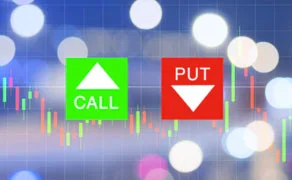
Depending on your trading experience, risk tolerance, and financial goals, you can choose between trading options and commodities. Both options and commodities offer benefits and drawbacks, and the decision ultimately comes down to your unique situation. To aid in your decision-making, consider the following comparison:
Trading Futures on Commodities:
- Direct Ownership: Essentially, you are trading contracts that represent ownership of the underlying commodity when you trade commodities futures. This enables you to profit from changes in the commodity’s price.
- Leverage: Futures contracts frequently offer a high degree of leverage, allowing you to gain substantial power over the underlying commodity with comparatively little initial investment. Gains and losses may be amplified as a result.
- Hedging: Producers and users of commodities can reduce price risk by using futures for hedging reasons.
- Increased Risk: Trading commodities futures is riskier when using leverage, and you run the possibility of losing more money than you started with.
Trading commodity options:
- Minimal Risk: An established degree of risk is offered by options. Options are a more cautious option than trading the actual commodity because you can only lose the premium you paid.
- Diverse techniques: Options provide you more options than just buying and selling. You can customise your trades to fit particular market situations with the use of spreads, straddles, and covered calls, among other techniques.
- Reduced cash Requirements: Compared to trading the underlying commodity or futures contract, options typically demand less cash.
- Time Decay: When an option gets closer to its expiration date, its value diminishes due to time decay. Depending on your plan, this could work in your favour or against you.
Taking Into Account When Selecting:
- Risk Tolerance: Options may be a better option if you wish to minimise your possible losses and are risk averse. Commodity futures might be a better option if you can tolerate a higher level of risk in exchange for the possibility of greater profits.
- Market Knowledge: Trading options and commodities both need for a solid grasp of the markets. On the other hand, options may be more complicated, so it’s important to understand how they work.
- Finances: Think about your objectives for your investments. Do you want to make long-term investments or speculate on the short term? Although options can be employed for short-term speculation, long-term investing may be best served by owning the actual commodity.
- Spreading risk can be achieved by diversifying your portfolio by holding a variety of assets, such as both options and commodities.
It’s critical to keep in mind that trading options and commodities both carry risk. To make sure your trading decisions are in line with your risk tolerance and financial goals, you might think about speaking with a financial counsellor or other expert. Furthermore, it’s a good idea to practise with little quantities of money or paper trade in order to obtain expertise before investing larger sums of money.
FOR MORE INFO CLICK THIS SITE:https://learningsharks.in/
FOLLOW OUR PAGE:https://www.instagram.com/learningsharks/?hl=en
